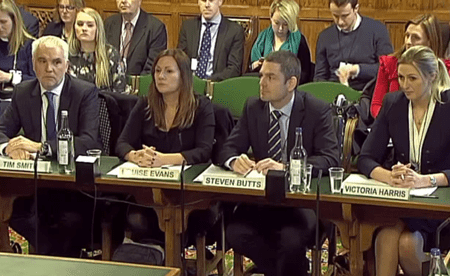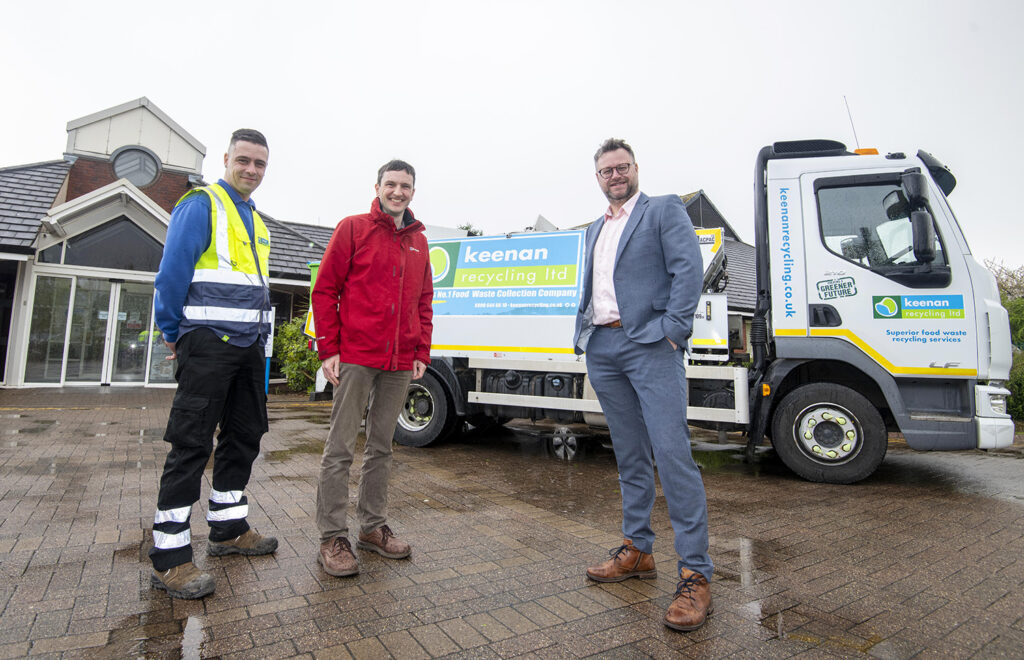Officials from Tesco, Sainsbury’s, Morrison’s and Waitrose discussed their companies’ efforts to reduce food waste at a meeting of the Environment, Food and Rural Affairs (Efra) Committee in Westminster.

The session explored work being done by retailers to reduce food waste, improving re-distribution of edible food to charities and measurement of data around food waste arisings.
While witnesses offered little opinion on whether compulsory legislation to force businesses to reduce food waste is needed, they agreed that the voluntary Courtauld Commitment 2025 (C2025) already serves as a national target.
Steven Butts, head of corporate responsibility at Morrison’s said that although C2025 includes a voluntary target “we don’t treat it as a voluntary arrangement.”
Victoria Harris, head of sustainability and responsible resourcing at Waitrose, added that aside from the C2025, “there is an economic imperative to do it as well as an environmental and a moral one.”
Consistency
A main focus of the session was on transparency in food waste data. While all four supermarkets have some form of data collection on the volume and nature of food waste in place, there is no uniform system of collecting and publishing, making it difficult to compare figures.
Commenting on the role of WRAP in acquiring transparent national data, Mr Butts said: “There has been a move to provide information [to WRAP] which will be available to the industry.”
He added: “I think the UK is the only supermarket sector to do that. In effect we have been taking a bit of a lead in gathering that information and making it public.”
“The real sticking point is within the consistency around measurement,” said Ms Harris. “What we’re trying to do with WRAP and with our peers is trying to get to a much more consistent measurement so that we can have a bit more like-for-like comparison.”
Collaboration
However, witnesses agreed that reducing food waste is not a competitive issue for supermarkets, but rather collaboration is key.
Mr Butts said: “The real benefit for us as retailers of working with WRAP is first of all the breadth and depth of their knowledge. And secondly, it provides a fairly neutral, non-competitive platform where we can all collaborate.”

The witnesses agreed that an area where collaboration is of particular interest is the development and improvement of redistribution schemes with food charities.
All four supermarkets have various partnerships in place with charities and NGOs to collect food surplus, but the schemes still face challenges such as unpredictable food availability and the need of volunteers.
Tesco group quality director, Tim Smith, said the company has set a target that by the end of 2017 “no food that is edible for consumption will go to any other source other than human consumption.”
Last year, Sainsbury’s announced a £1 million fund available to towns and cities across the UK as part of its campaign to tackle food waste (see letsrecycle.com story).
Marketing
The witnesses also touched on changing marketing techniques to help customers waste less food, claiming they had removed tactics such as multi-buys and ‘buy one get one free’ offers.
CONFERENCE: Hear more from Sainsbury’s and its actions on food waste at the National Food Waste Conference in London on 23 February. For more details click here.
However, when committee members checked the supermarkets’ online shopping platforms they appeared to still offer these deals, which encourage customers to buy more than they need.
Initially arguing that online shopping behaviour is different from shopping in-store, when pressed further on the difference between buying fresh products online or in-store, the witnesses declined to comment further.










Subscribe for free